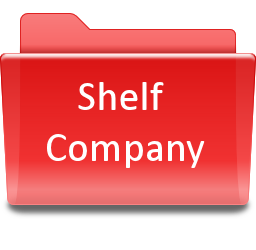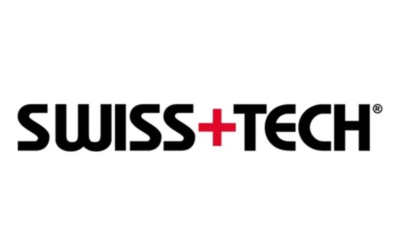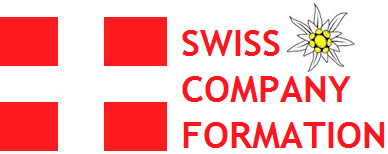Would you talk with someone in our company regarding any issues? Just drop us a line!
- 1 Understanding Participation Deduction in Switzerland
- 2 What Is the Participation Deduction?
- 3 Criteria for Qualifying Participation
- 4 Strategic Insights into Swiss Fixed Asset Management and Reporting
- 5 Extending Tax Efficiency: Holding Company Strategies and Investment Planning
- 6 Avoiding Pitfalls: What Doesn’t Qualify?
- 7 Final Optimization and Long-Term Strategy: Leveraging Participation Deduction
- 8 Conclusion
- 13 FAQ about Understanding Participation Deduction

Understanding Participation Deduction in Switzerland: A Strategic Tax Advantage
Switzerland’s tax framework has long been lauded for its clarity, neutrality, and appeal to corporate investors. Among its most compelling tax relief tools is the participation deduction, a mechanism that prevents economic double taxation on income derived from significant shareholdings. This provision forms a core part of the Swiss Federal Act on Direct Federal Taxation, particularly Articles 69 and 70. In this article, we explore the application, criteria, and optimization strategies surrounding the participation deduction.
What Is the Participation Deduction?
The participation deduction Switzerland allows a corporate taxpayer to reduce its taxable income based on profits received from certain qualifying investments. These typically include intercompany dividends and capital gains on shares. By design, this tax relief is aimed at eliminating the repeated taxation that would otherwise occur as profits move through layers of corporate ownership.
In the absence of this mechanism, income might be taxed:
- At the subsidiary level
- At the parent company level
- And again at the shareholder level
For instance, a holding company receiving CHF 400,000 in dividends from a subsidiary would normally be subject to tax on this income. However, under the Swiss corporate tax deduction scheme, much or all of this income can be exempt, provided that the holding meets the minimum participation requirement.
Criteria for Qualifying Participation
To be eligible for the deduction, companies must hold a qualifying participation, which is defined by:
- At least 10% ownership in the equity or voting rights of another company
- Or, a market value of at least CHF 1 million in shares
- Or, rights to at least 10% of the distributing company’s profits
Further, for capital gains deduction Switzerland to apply, the investment must have been held for a minimum of one year. These rules ensure that only substantial, long-term investments benefit from the exemption.
For more legal guidance, visit: https://www.fedlex.admin.ch/eli/cc/1990/1570_1570_1570/en
How the Deduction Works in Practice
The net participation income—the income derived from shares after deducting directly related expenses—is used to calculate the participation deduction ratio. This ratio is then applied to reduce the company’s total taxable income. An additional 5% of the gross dividend income may be deducted for administrative costs, making the benefit even more substantial.
Let’s break down an example:
| Item | Value (CHF) |
| Gross dividends received | 500,000 |
| Direct expenses | 100,000 |
| Net participation income | 400,000 |
| Total taxable income | 1,000,000 |
| Deduction ratio (400,000 / 1,000,000) | 40% |
| Final taxable income | 600,000 |
Such savings can significantly impact a firm’s financial strategy and return on equity. Many Swiss companies, including Swiss AG and Swiss GmbH entities, rely on this deduction to reinforce profitability.
Learn more about how Swiss companies optimize taxes here: https://swisscompanyformation.com/articles/blog/swiss-taxes-a-comprehensive-overview/

Extending Tax Efficiency: Holding Company Strategies and Investment Planning
Beyond the mechanics of the participation deduction, Swiss corporations can leverage their status as holding entities to maximize the tax advantages offered by the system. One powerful application is the structuring of international investment income Switzerland through domestic holding vehicles. These structures allow companies to benefit from dividend tax relief Switzerland and shield portions of capital gains from participations.
Many businesses choose Switzerland as their headquarters not only for economic stability but also for its favorable regulatory treatment. The Swiss foundation and Swiss company setups often play critical roles in managing diverse investment portfolios under compliant legal frameworks.
Companies pursuing a holding company tax strategy Switzerland typically focus on accumulating qualifying assets to benefit from lower effective tax rates. It’s worth noting that certain cantons offer specific incentives to holding structures, further improving net profitability.
Table: Summary of Participation Deduction Requirements and Tax
| Criteria | Requirement / Value |
| Minimum equity participation | 10% or CHF 1 million market value |
| Minimum holding period (capital gains) | 12 months |
| Applicable income | Dividends, capital gains |
| Allowable expense deduction | Direct costs + 5% admin allowance |
| Participation deduction formula | Net income / total taxable income × 100 |
Explore more about Swiss business structures
Avoiding Pitfalls: What Doesn’t Qualify?
While the deduction appears broad, it excludes certain forms of income and capital gains. For example:
- Gains from intellectual property transfers may not count
- Portfolio investments with less than 10% ownership generally don’t qualify
- Losses from liquidated participations may reduce net deduction
Further, tax on intercompany dividends Switzerland can still arise if conditions are not met, such as short-term holdings or improperly documented share transfers. It is essential to involve qualified Swiss tax advisory services early in the planning phase.
A common mistake involves underestimating the relevance of the minimum participation requirement. Even if companies own multiple small stakes across entities, they cannot consolidate these to meet the threshold. Proper corporate structuring becomes critical.
Refer to this comprehensive breakdown of Swiss GmbH incorporation for more insights.
Final Optimization and Long-Term Strategy: Leveraging Participation Deduction
The Swiss Code of Obligations fixed assets and tax statutes promote a stable financial environment that encourages transparency and long-term planning. This legal foundation underpins the success of the participation deduction Switzerland, particularly when utilized as part of a comprehensive corporate structure that includes subsidiaries, holdings, and multi-tier investments. For international firms, it represents a critical gateway into corporate investment tax benefits and Swiss accounting standards.
Table: Key Metrics for Evaluating Investment Efficiency
| Metric | Description |
| Book value fixed assets | Historical cost minus depreciation |
| Asset coverage ratio | Fixed assets vs long-term liabilities |
| Capital intensity ratio | Proportion of fixed capital vs total assets |
| Fixed asset turnover ratio | Revenue / average fixed assets |
| Return on assets Switzerland | Net income / total assets |
These indicators not only aid in internal benchmarking but also support compliance with local standards and investor reporting obligations.
As a best practice, Swiss businesses routinely review their net participation income, reclassify investments when needed, and consult with Swiss tax advisory experts to maximize available reliefs. Particularly for holding entities and investment-centric firms, these evaluations are a cornerstone of balance sheet optimization Switzerland.
Companies setting up in Switzerland should explore multiple entity options, such as Swiss AG or Swiss GmbH, to determine which form best supports their growth and tax efficiency strategy.
In addition, having a compliant financial footprint means being aware of international reporting frameworks and evolving tax treaties. Incorporating expert advice ensures that you remain aligned with evolving Swiss and OECD standards.
Learn how to integrate your Swiss bank account setup into your investment planning or explore the nuances of a Swiss residence permit for key stakeholders and foreign directors.
Conclusion
The participation deduction Switzerland is more than just a tax exemption—it’s a strategic financial instrument that enables businesses to reinvest profits, grow equity positions, and maintain fiscal health. From dividends to capital gains, the ability to legally minimize tax exposure while complying with the Swiss Federal Act on Direct Federal Taxation provides a substantial advantage to companies operating in or through Switzerland.
With careful planning, especially through the guidance of Swiss accounting services, firms can avoid common pitfalls and take full advantage of the available tax reliefs. Whether optimizing through qualifying participation in subsidiaries or structuring intercompany dividends for maximum impact, the participation deduction remains a vital component of the Swiss corporate ecosystem.
For international investors, financial directors, and entrepreneurs, leveraging this deduction offers both short-term tax savings and long-term balance sheet stability—particularly when aligned with expert advisory and sound legal structures.
Explore more about Swiss taxes and how you can implement these tools into your global strategy.
Would you talk with someone in our company regarding any issues? Just drop us a line!
FAQs
It is a tax relief mechanism that allows companies to reduce tax liability on income from qualifying shareholdings, helping to prevent economic double taxation Switzerland.
A qualifying participation includes at least 10% share ownership or CHF 1 million in market value, as specified under the Swiss Federal Act on Direct Federal Taxation.
No, it only applies to corporations meeting the minimum participation requirement and holding periods.
It significantly reduces taxable income from dividends and capital gains, enhancing corporate investment tax benefits.
Yes, if they maintain a 12-month holding period and meet asset value thresholds.
Not necessarily. Tax on intercompany dividends Switzerland applies if eligibility criteria for participation deduction are not satisfied.
It refers to the net profit derived from qualifying participations after deducting related costs.
They are excluded from participation deduction but are governed by separate Swiss accounting standards.
Effective use of book value fixed assets and performance-based depreciation improve returns.
To navigate eligibility, avoid pitfalls, and structure entities in compliance with Swiss depreciation methods and international treaties.



















































